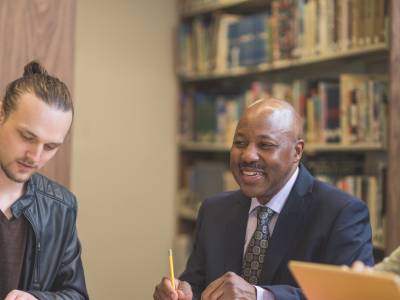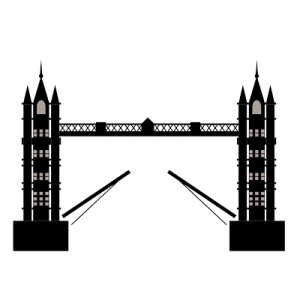Mid-term Finals at Yale Law School
By tmalmine in Law According to Yale on Mar 21, 2007
Finals at YLS
It has been quite a while since I updated this blog. In December, I was busy preparing for the exams. Then, after the exams, I wanted to wait for the results. I’m still missing one grade, but it’s a credit/fail course so there’s not much to wait for. Here’s a short description of the exam system at Yale for those who are coming to study here or otherwise interested in the topic.
YLS Finals are in January and May. Unlike in some other schools, the exams are usually open-book and consist of several essays. My legal-philosophy exam, for instance, comprised of two essays. I had 48 hours to finish it. The students were allowed to use any materials they wished; the only limitation was that the overall length of the essays was not to exceed 10 pages. Legal-history exam had three essays and a 24-hour time limit. Torts was three hours and two questions (an essay and a case). Torts was closed-book, but a credit-fail, which balances the stress factors.
This system has its advantages and disadvantages. Generous time limits in open-book exams make it possible to write very good essays. On the other hand, other students, too, have lots of time; this means that there are lots of good essays. YLS has a reputation for extremely generous grading. Although there is a grain of truth to this, the point is easily overemphasized. The law school has a three-tiered grading system: low pass, pass, and honors. Low pass is rarely given. Honors depend on the professor. Some award it to 10 % of the class participants. This happened in one of my classes. Out of some 30 students, 3 got an “H”. I wasn’t one of them. So far, I have been awarded two “Passes” and one “H”. Initially, I was disappointed with the results. After some reflection, I became more realistic. If three students out of 30 are given honors, I would have to beat 26 American students to make it. American students at YLS are brilliant and they enjoy a definite home-field advantage (writing in their native tongue, for starters). I read some of the honors papers and they were superb, both analytically and linguistically. For a foreign student to write with similar command of English would be a protean task indeed. Additionally, American students have studied four years in college and possibly two years in law school. That is significant experience in knowing what American professors are looking for in an essay. Perhaps it’s not a realistic goal for foreign students to aim for the highest grade in the most competitive classes.
If you’re simply looking for grades, it probably makes sense to choose smaller seminars and paper-based courses. In those professors are more generous with grades. I do believe, however, that if you have studied at YLS or at other top American law school, your grades are not extremely important (if they are decent anyway). If you intend to apply for a job in an American law firm, your assets will most likely be foreign languages, contacts in your home country, and knowledge of a foreign legal system. No LL.M. can beat all his American competitors solely on the basis of grades. And if you return to your home country, you have definite linguistic, social, and intellectual assets that should give you enough advantage even without stellar grades.
My next posting will be on courses and teachers at YLS. It will be available later this week. After that, I will probably update this blog once more, summarizing my experience. My LL.M. studies are drawing to a close; soon one of the new LL.M. students at YLS should start his/her own blog:)
Best,
Toni
Comments
tmalmine, Feb 21, 2011 08:35
You're quite right, of course. Should have checked the exact meaning of the word before using it. Rather embarassing way to prove one's point...
Proteus, Feb 21, 2011 02:37
'For a foreign student to write with similar command of English would be a protean task indeed.'
You used 'protean' incorrectly though it rather proves your point.
tmalmine, Mar 24, 2007 12:13
Here is what Leiter says:
1. Columbia University 4.3
University of Pennsylvania 4.3
3. Harvard University 4.2
4. University of Chicago 4.1
5. University of California, Berkeley 4.0
University of Texas, Austin 4.0
University of Virginia 4.0
8. New York University 3.9
Stanford University 3.9
Yale University 3.9
11. Boston University 3.8
Georgetown University 3.8
Northwestern University 3.8
University of Illinois, Urbana-Champaign 3.8
University of Michigan, Ann Arbor 3.8
16. University of California, Los Angeles 3.7
17. Duke University 3.6
University of San Diego 3.6
University of Minnesota, Twin Cities 3.6
University of Southern California 3.6
Vanderbilt University 3.6
You were entirely correct with regard to Penn and criminal law. Although Yale has put some emphasis on this field recently (hiring Tracy Meares, for instance; Whitman and Donohue have also reoriented their scholarship towards this area), CLS and Penn remain stronger in this field.
Have you done scholar-by-scholar comparison of these schools?
tmalmine, Mar 24, 2007 10:24
One additional remark: my spring workload is five papers and two exams. It shows that the LL.M. studies at YLS are paper-oriented.
tmalmine, Mar 24, 2007 10:19
Hi Levin!
Let me answer your queries in reverse order.
I agree with you that Columbia is better for criminal law and possibly for legal theory. Having said that, I wish to point out that YLS has some interesting figures in these fields: John Langbein (comparative criminal procedure), Jules Coleman (analytic jurisprudence), James Whitman (comparative traditions of punishing), John Donohue (empirical law and economics of capital punishment, abortion and crime, and gun-control laws), Dan Kahan (cultural cognition and crime), and Tracy Meares (who will be joining the faculty next fall). But the fact remains that Columbia remains the leading faculty in criminal law and very strong on legal theory. I presume that by fundamentals of criminal law you mean something like philosophical and conceptual foundations of crime and punishment. In this area George Fletcher of CLS is the leading figure in America. So perhaps CLS would indeed be better choice for you.
I know much less about Penn, but it is not clear to me that its faculty is stronger in these areas than Yale's. You might want to take a look at Leiter's law schools rankings on this.
I believe you could work on your thesis at YLS. Besides independent research (something which nearly every LL.M. student at Yale conducts), you would probably be able to work on your thesis in the seminars: the seminar paper could be part of your thesis. This year, for instance, there was a year-long seminar on comparative sentencing practices. This allows for substantial research on the topic. But if the other law schools allow you to write a substantial Thesis, perhaps they might be more suitable for you.
In sum, compare individual scholars at these schools. Whose writings really appeal to you. Perhaps Columbia would be the best school for you. Choosing Penn over Yale would be an unorthodox choice, but of course possible if you think that it would be really good for your own research. Yale has much to offer, but it's not superior to other schools.
Well, I hope these ruminations were useful. I would love to hear more of your thoughts. I'm interested in the comparative law of self-defense and would like to hear your opinion on criminal law faculties in the US. It's a topic I know too little about.
Levin, Mar 23, 2007 23:49
Dear Toni
Thank you very much for these valuable informations. How would you describe and rate the opportunities one has in the Yale LLM program do to independent research and writing? I understand that you can get up to 6 units (out of min. 24 units) with research and writing under the supervision of a faculty member. What does this de facto mean? I am currently writing a postdoctoral thesis at my home university and I was hoping to be able to add substantive parts during my stay at Yale. In other words, I would like to keep the amount of prescribed exams as low as possible (assuming that I will generally not be able to translate the work on these exams into my postdoctoral thesis) while at the same time seeing enough of both worlds (courses/seminars and independent research) to have a holistic experience. I am still considering offers from HLS, CLS and UPenn and I must say that they seem to give more weight to research as a way to gain credit units (LLM thesis or thesis track). A 50/50 ratio somehow looks like the best deal to me right now and I fear I will not be able to even get close to that at YLS. On the other hand, I am writing this postdoctoral thesis to qualify as a full law professor and from the general point of view of an academic career it remains beyond doubt that Yale is my best choice.
In addition to the question marks surrounding the opportunity to do research, I am also not quite sure if Yale's well deserved reputation as the best Law School for a career in law teaching can outweigh my impression that in my area of research (fundamentals of criminal law, medical law and legal theory) it is not as strong as CLS or UPenn. Can you comment on that?
Thank you and take care
Levin
tmalmine, Mar 22, 2007 15:28
Hi Lit!
Thanks for your comments. You're the most loyal reader of my blog:)
My number one plan is to nominated as an Assistant Professor of Legal History and Roman Law at the University of Helsinki. I'm applying right now, but the decision will be made in May or thereabouts, I presume.
I have also been fortunate with getting funding for my research. Even though I wouldn't be nominated for the position, I have funding for approximately 18 months.
So, my plan A and plan B will be conducting research in legal history and comparative law. And I am just as excited about it as I was four years ago, when I first started planning my Master's Thesis.
Lit, Mar 22, 2007 09:56
Great reading as always, Toni. I feel quite sad that your studies at Yale will be coming to an end soon, I have enjoyed most of your blogs and found your entries most informative.
I also find it difficult to believe that the American student at Yale would have a far better command of English than you do, which seems to me, to be quite superb. I just think you're modest, even though English is your second language?
So what are youir plans fro next year or after you finish your studies?
LLM News
LLM Articles
Why Tech Law is the Hot New LL.M. Focus in an AI Era
Nov 14, 2024
Schools are helping lawyers prepare for a fast-changing legal world impacted by AI and developing technology. Students can benefit from a cutting-edge curriculum and new job opportunities.
Connect with Top California Law Schools
Nov 07, 2024
The California Law LL.M. Consortium is giving prospective students in Milan and London the opportunity to meet school and admissions representatives. They will hear about top legal issues and learn about how a U.S. LL.M. can benefit their careers.
Leaping Back into Firm Life After an LL.M.
Nov 05, 2024
Leaving school behind can feel daunting but if a graduate understands the different expectations and is conscious of new technology, it can make returning to a firm that much easier.
Making the Most of Your LL.M.: Why Extracurricular Groups Matter
Oct 28, 2024
Activities outside class time can give students a more well-rounded experience during their degree. They can build crucial skills and expand a student's network to benefit their post-school life.













